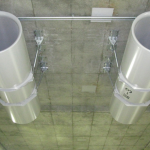The Brazilian financial market has experienced significant movements, reflecting the current economic landscape. Investors are closely monitoring various factors that influence trading activities, including economic indicators, political decisions, and global trends. These elements play a crucial role in shaping the business environment and expectations for the near future, demanding constant attention from those seeking consistent opportunities.
Stock performance has been marked by volatility, with certain sectors showing higher sensitivity to current news. Companies in energy, technology, and consumer sectors display varied results influenced by corporate announcements and economic data. This scenario highlights the importance of detailed analysis to understand the forces shaping the market and to guide strategic decisions effectively.
Furthermore, foreign capital flow has a substantial impact on market operations. International investors show interest in Brazilian assets, influencing buying and selling dynamics. This movement reflects external perceptions of economic stability and growth prospects, demonstrating how global factors interact directly with the local market.
Market behavior is also shaped by technical factors such as support and resistance levels, guiding buy and sell decisions. By analyzing charts and indicators, investors seek to identify strategic points to maximize returns and minimize risks. This technical approach complements fundamental analysis, providing a more comprehensive understanding of market dynamics.
The political landscape also plays a key role in market activity. Statements from authorities and expectations regarding reforms and public policies influence investor confidence. Changes in the political environment can create uncertainties, directly affecting decisions and risk perception in the financial market.
Regarding liquidity, trading volume reflects investors’ interest in the opportunities presented. High liquidity facilitates entry and exit positions, providing greater flexibility in investment strategies. This factor is essential for market efficiency and the formation of fair prices, reinforcing the need for ongoing analysis.
Market closures reflect a balance between optimism and caution. While some investors show confidence in economic prospects, others remain vigilant about potential risks. This balance is typical of a market that constantly adapts to internal and external conditions, requiring daily monitoring of movements.
In summary, the performance of the Brazilian market is influenced by a combination of economic, political, and technical factors. Investors who closely monitor these elements can make more informed decisions aligned with their strategies and risk profiles. Continuous analysis of these factors is crucial to understand trends and prospects, ensuring a more strategic and secure approach.
Author: Bergezin Vuc







